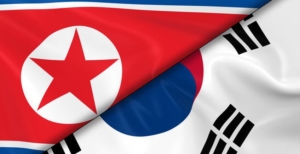By Michael Martina & Christine Kim, Reuters–
The United States and South Korea will go ahead with joint military drills next week, the top U.S. military official said on Thursday, resisting pressure from North Korea and its ally China to halt the contentious exercises.
North Korea’s rapid progress in developing nuclear weapons and missiles capable of reaching the U.S. mainland has fueled a rise in tensions in recent months.
Pyongyang threatened last week to fire missiles towards the U.S. Pacific territory of Guam and U.S. President Donald Trump warned soon after that North Korea would face “fire and fury” if it threatened the United States.
Annual military drills involving tens of thousands of U.S. and South Korean troops are due to begin on Monday. China, North Korea’s main ally and trading partner, has urged the United States and South Korea to scrap the drills in exchange for North Korea calling a halt to its weapons programs.
Joseph Dunford, Chairman of the U.S. Joint Chiefs of Staff, said the exercises were “not currently on the table as part of the negotiation at any level”.
“My advice to our leadership is that we not dial back our exercises. The exercises are very important to maintaining the ability of the alliance to defend itself,” Dunford told reporters in Beijing after meeting his Chinese counterparts.
“As long as the threat in North Korea exists, we need to maintain a high state of readiness to respond to that threat,” he said.
Fan Changlong, a vice chairman of China’s powerful Central Military Commission, told Dunford that China believes the only effective way to resolve the issue is through talks.
“China believes that dialogue and consultations are the only effective avenue to resolve the peninsula issue, and that military means cannot become an option,” China’s Defence Ministry cited Fan as saying.
North Korea, which denounces the drills as a preparation for war, has fired missiles and taken other steps in the past in response to the war games.
The United States and South Korea remain technically still at war with North Korea after the 1950-53 Korean conflict ended with a truce, not a peace treaty.
“CROSSING A RED LINE”
Pyongyang conducted what it said were two successful intercontinental ballistic missile (ICBM) tests in July, further raising tensions after five nuclear tests.
“I would consider that North Korea is crossing a red line if it launches an intercontinental ballistic missile again and weaponizes it by putting a nuclear warhead on top of the missile,” South Korean President Moon Jae-in said at a news conference in Seoul marking his first 100 days in office.
Moon has repeatedly urged North Korea not to “cross the red line” but had not previously elaborated what that would constitute.
Trump had promised to seek negotiations and approval from South Korea before taking any options regarding North Korea, Moon also said.
Washington has said it prefers global diplomatic action to stop North Korea’s ballistic missile and nuclear programs but it is ready to use force if needed.
However, chief White House strategist Steve Bannon said there was “no military solution” to North Korea’s nuclear threats because of Pyongyang’s massed artillery targeting the South Korean capital.
“Until somebody solves the part of the equation that shows me that 10 million people in Seoul don’t die in the first 30 minutes from conventional weapons, I don’t know what you’re talking about, there’s no military solution here, they got us,” Bannon told The American Prospect.
Bannon said he was pushing the U.S. administration to take a harder line on China trade and not put complaints against its trade practices in the back seat in the hope that Beijing would help restrain leader Kim Jong Un.
“To me, the economic war with China is everything. And we have to be maniacally focused on that,” The American Prospect quoted Bannon as saying.
North Korean media reported on Tuesday that Kim had delayed the decision on firing four missiles towards Guam, a U.S. territory home to a vital air base and Navy facility, while he waited to see what the United States did next.
“Kim Jong Un of North Korea made a very wise and well reasoned decision,” Trump wrote on Twitter on Wednesday. “The alternative would have been both catastrophic and unacceptable!”
H.R. McMaster, Trump’s national security adviser, met Japan’s defense and foreign ministers in Washington on Wednesday to discuss the importance of deterring North Korea’s provocations and Tokyo’s ballistic missile defenses, according to the Japanese government.
Additional reporting by Philip Wen and Ben Blanchard in BEIJING, and Linda Sieg in TOKYO; Writing by Lincoln Feast; Editing by Paul Tait


Leave A Comment
You must be logged in to post a comment.